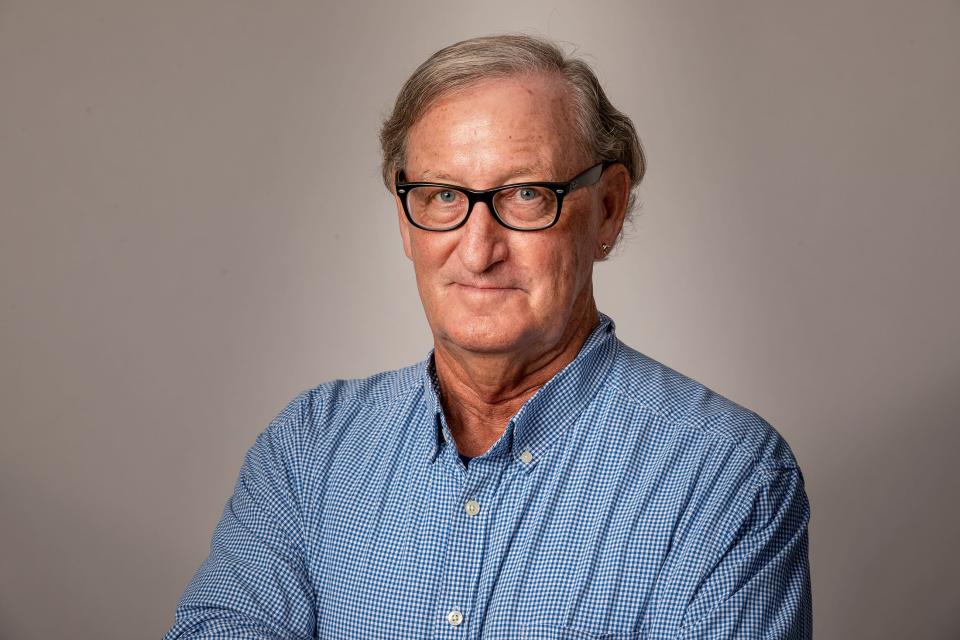Ravensbrück is a stark reminder of the politics of exclusion | R. Bruce Anderson
![Items recovered from the Ravensbruck concentration camp by Florida Gulf Coast University students, teachers and archivists. [News-Press archives]](https://s.yimg.com/ny/api/res/1.2/cGmravuWvieR7smtjScEow--/YXBwaWQ9aGlnaGxhbmRlcjt3PTEyNDI7aD05MzI-/https://media.zenfs.com/en/the-ledger/989c43e2986e08226686ab193e52743b)
When I was growing up, we were asked to think of the USA as a great “melting pot,” a place where many came together as one.
But it was pretty clear to me, even when I was very small, that there were plenty of people who were not invited to the pot. People of African heritage were clearly and literally kept out of the “melting” process. So were a lot of other people.
Arrival at Ravensbrück KZ Memorial each year with a trainload of interested students is almost always the highlight of the academic year for me. We’ve been doing this for so long now that a bunch of oddball traditions have arisen, including a fire-ring, the walk from the train to the site, and making rude gestures at the commandant’s house (because the people imprisoned, tortured and ravaged here dared never do so).
It all sounds a bit trite to an outsider – or minimizing what happened here, but I wholly reject this as a misinterpretation only possible by never having visited this place. A few years ago, one of my students mused over it all, and told me: “You know, it’s not the Nazis who are looking down on us, here. It’s the prisoners.”
Their voices are definitely heard here. Lives not only lost but wasted – crushed by a system of government that rejected their basic humanity. The Ravensbrück memorial site is an artifact with lots to tell us about the mechanics of tyranny. It highlights the central question about law and the social order: Who is to be excluded?
The original notions of law, from Hammurabi to the Ten Commandments, common law to the current system of legislated statutes, is wholly concerned with what people do. It’s bound up in the idea that there are behaviors that the collectivity rejects as unacceptable: murder, theft, violations of others' right to sleep peacefully.
But prisons like this one were — and are — based on something very different.
They are centered on jailing, torturing and killing people based not on what people did, but on who they are.
As we toured our new researchers around the camp today, the main questions that are repeated over and over again were variants of “who were these people?” It’s not a complex question, really. The prisoners here were sharply defined by the system that was designed to answer that question in no uncertain terms: “they were Jews”; “they were Jehovah’s Witnesses”; “they were gay”; “they were Roma.” Or by nationality: “they were Poles”; they were Russians”; “they were Czech.”
You can't get everything you want It's not possible. But vote anyway | R. Bruce Anderson
The machinery of hate itself had a coding system, revealing just how important these divisions were to the perpetrators: a yellow star; a pink triangle… whole sheets of such documentation are in the archives, detailing in granular fineness where they came from, what their religion was, what “race” they belonged to. Not what they had done – but who they were.
It was not the politics of division — but of total separation. If you were X, you were an enemy of whoever was left in the shrinking population of those who were “approved” as “human.” All others were somehow not. Dehumanization.

Because humans were entitled to dignity – non-humans were not. So, the language of the Third Reich was closely demarcated to label those humans who were not humans: humans became pests, insects. Unwanted people were visualized as termites, as cancer, as a biological infestation – not as people.
The USA is not Nazi Germany – it cannot be. But we are now being asked, in many cases, to revitalize this vision: that there are people who are somehow not part of the whole, not part of our humanity. They don’t “belong.”
We must never forget that when we identify people in this manner, no matter who they are, via racism, antisemitism, anti-LGBTQ-isms, we are headed onto the long spiral down into a system that can end in places like Ravensbrück.
R. Bruce Anderson is the Dr. Sarah D. and L. Kirk McKay, Jr. Endowed Chair in American History, Government, and Civics and Miller Distinguished Professor of Political Science at Florida Southern College. He is also a columnist for The Ledger and political consultant and on-air commentator for WLKF Radio in Lakeland.
This article originally appeared on The Ledger: Ravensbrück a stark reminder of the politics of exclusion | Anderson

